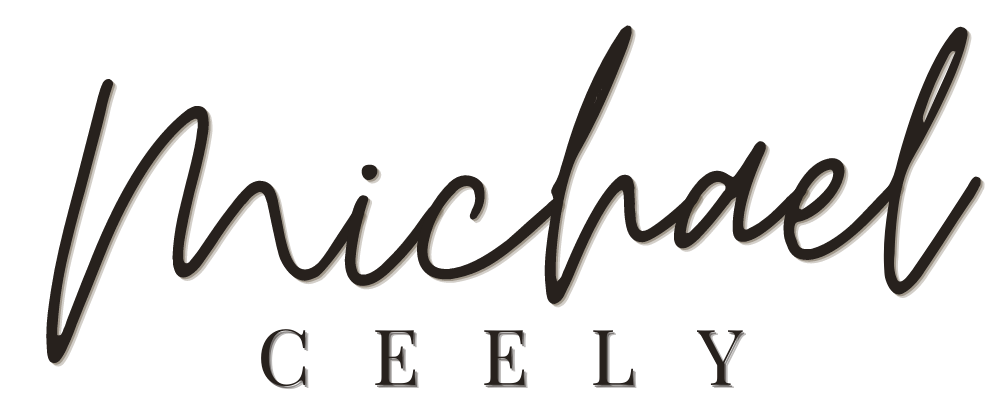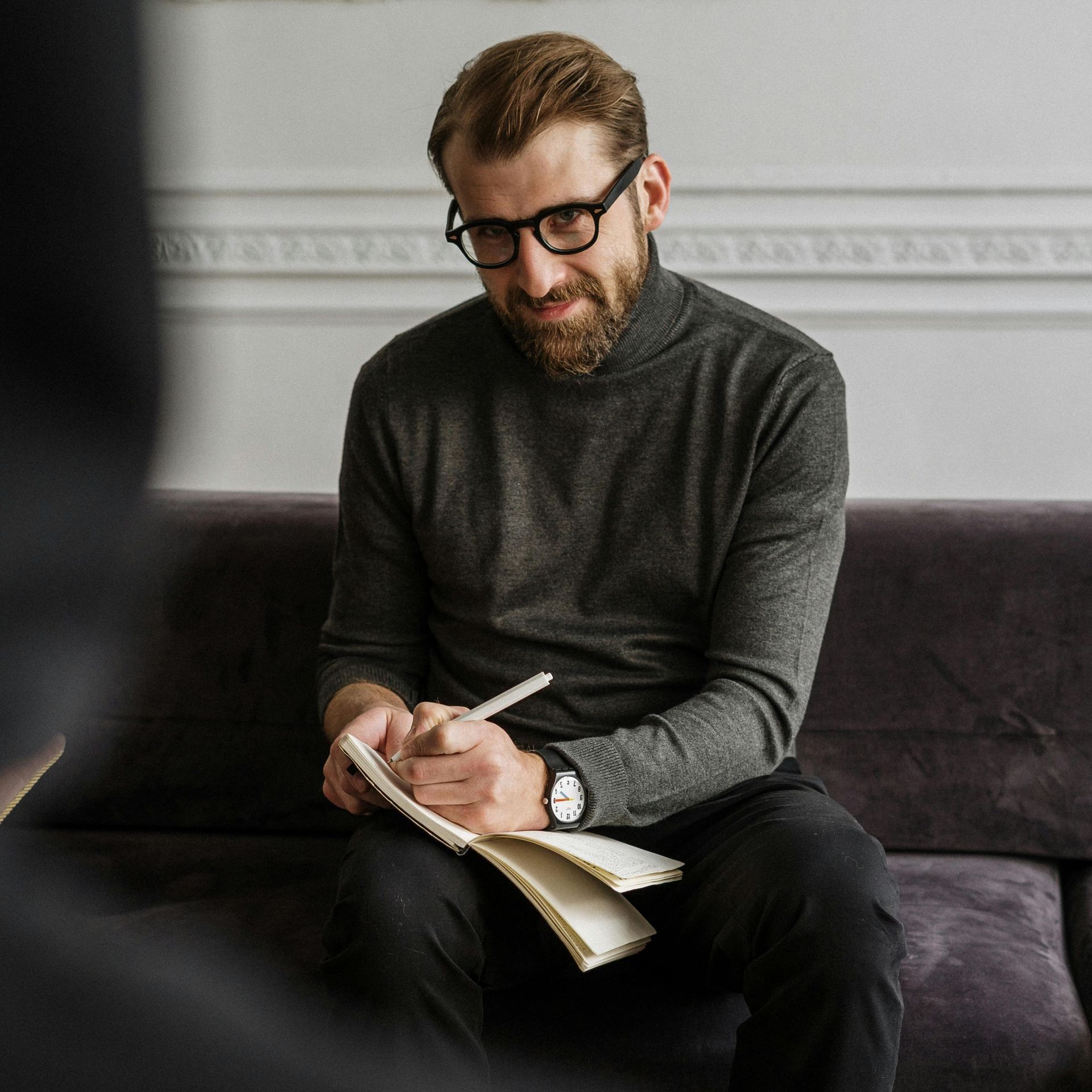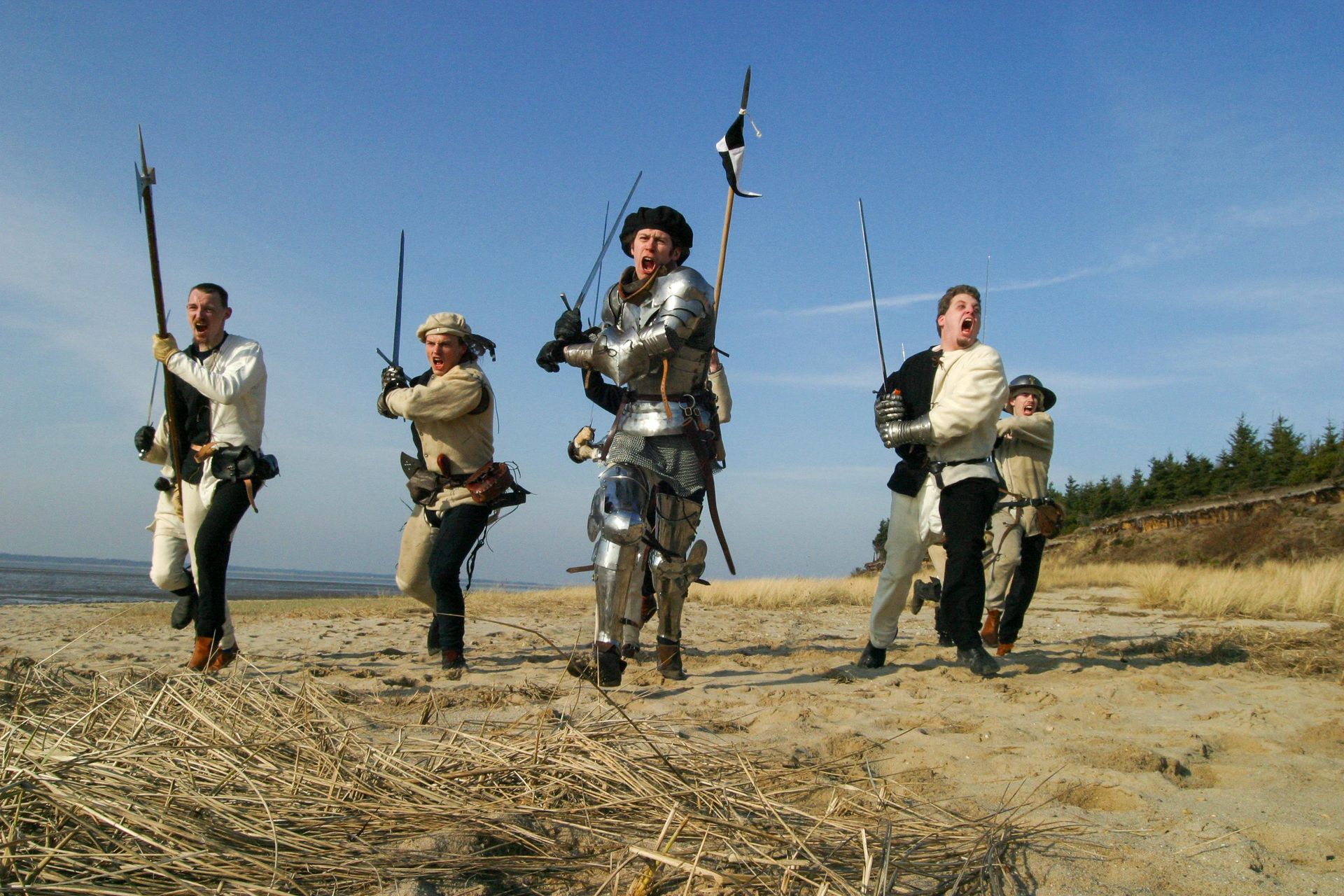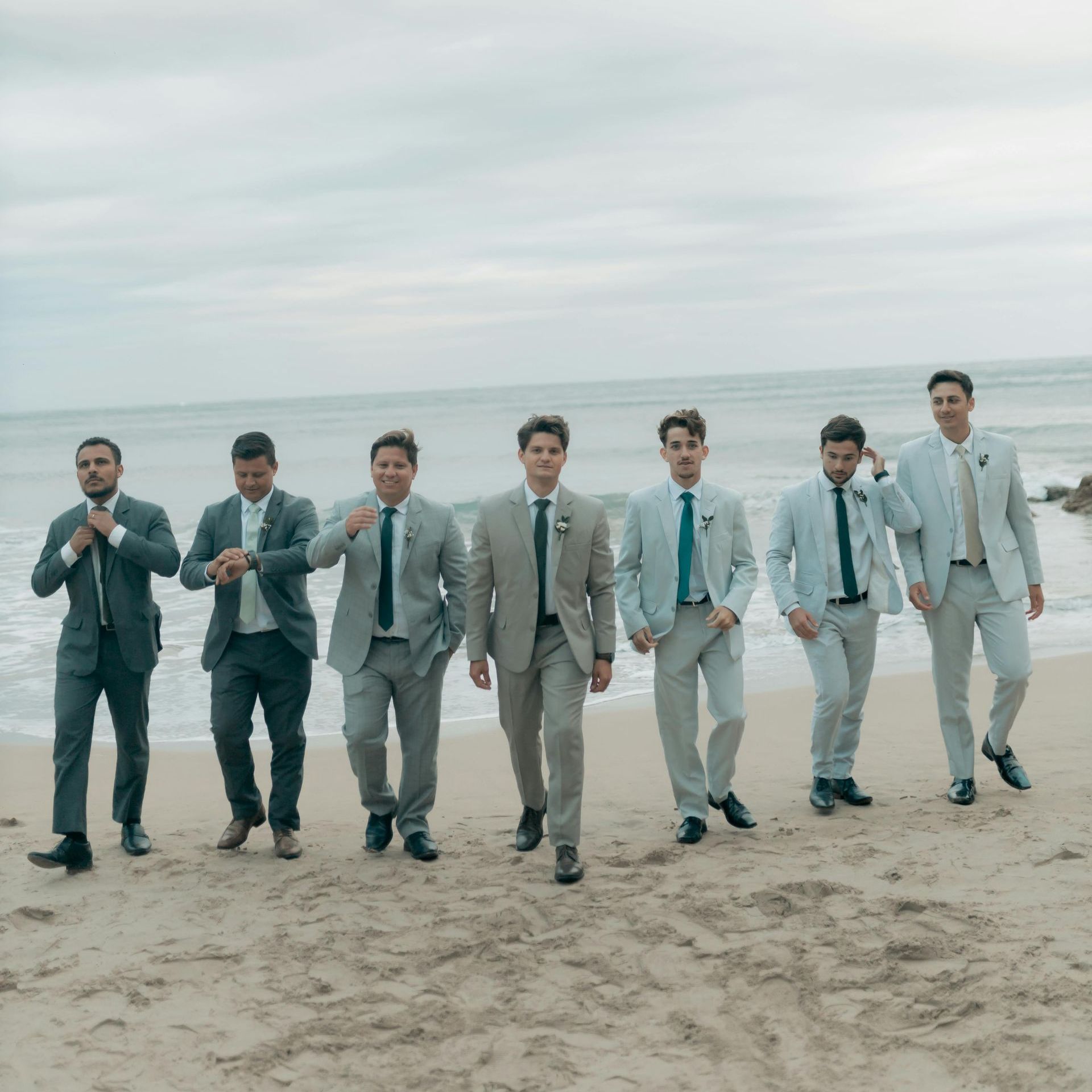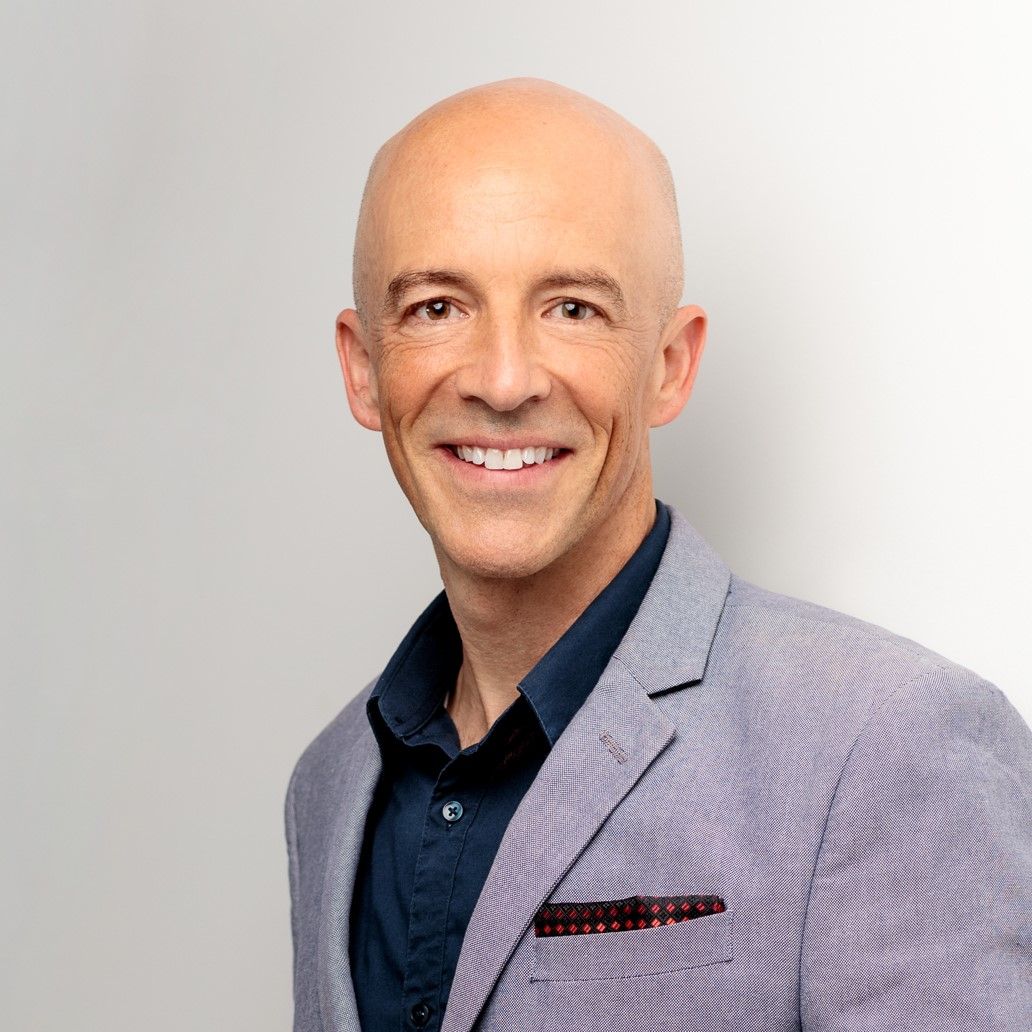Men's therapy is being redefined. Now is the time to consider the benefits of individual therapy, group therapy, and men's retreats.
Men's therapy is evolving, redefining what it means for men to seek mental health support and emotional growth.
In this article, we'll explore the insights and wisdom shared by Marc Azoulay, founder of
Men’s Therapy Online. Marc was on my
High Performance Podcast, and we had a great conversation about men's mental health.
This article addresses the challenges men face, the transformative power of men's therapy, and the stages men pass through on their way to healing and self-actualization.
Whether you’re considering therapy yourself or seeking to understand more about men’s mental health, this article offers an honest and practical look at the topic.
Watch the Video: Discover Your Inner Hero
Understanding the Need for Men's Therapy
Many men experience a disconnect between their desires for meaningful relationships and the reality they live with. Often, men want to connect deeply but find themselves feeling lonely, confused, or stuck in patterns that don’t work. This is partly because societal expectations and traditional masculine norms do not always provide clear feedback or emotional guidance.
Marc Azoulay explains that this lack of honest feedback can leave men feeling isolated and misunderstood, which is why men’s therapy can be so powerful. It creates a space where men can receive that honest feedback and use it to grow.
Marc Azoulay’s Path to Therapy
Marc’s journey into the world of psychotherapy is a story of reinvention, struggle, and healing. Growing up as a self-described nerd, he faced bullying and a lack of male role models. His adolescent years saw him get involved in a punk rocker lifestyle filled with drugs and risky behavior.
His turning point came after a drug overdose in college, which led him to therapy. His breakthrough came with a male therapist who provided a compassionate, engaged, and emotionally authentic connection, something Marc had not experienced before.
This personal experience fuels his passion for men’s therapy today, especially the importance of creating spaces where men can be truly seen, heard, and supported.
The Unique Challenges Men Face in Therapy
Men face unique hurdles in their mental health journey:
- Societal Expectations: Men are often expected to be stoic, self-reliant, and emotionally controlled, which can make vulnerability feel risky or shameful.
- Lack of Emotional Role Models: Many men grow up without older male figures who model emotional intelligence and healthy masculinity.
- Conflicted Masculinity: Men may struggle between bad habits like angry outbursts and a desire to express authentic emotions in a more productive way.
Men’s therapy addresses these challenges by providing a structure where men can explore their emotions honestly, challenge harmful patterns, and practice new ways of relating.
The Power of Men’s Groups and Retreats
One of the most impactful aspects of men’s therapy, according to Marc, is the power of group work and retreats. These settings create unique opportunities for men to:
- Practice Honesty: Groups encourage men to share their true feelings, including anger and vulnerability, in a safe environment.
- Receive Honest Feedback: Unlike many social settings, men’s groups provide a “clear mirror” where peers can call each other out on their behaviors and blind spots.
- Experiment with Conflict: Men can practice healthy conflict resolution and emotional expression without fear of judgment.
Marc compares men’s groups to a dojo or martial arts gym where men can “spar” emotionally, learning how to engage with conflict and connection in productive ways. This experience is especially valuable for men who have developed avoidant or explosive patterns around conflict.
What Makes a Good Men’s Group?
Marc emphasizes two key elements: honesty and experimentation.
- Honesty: This means not only being truthful about one’s own feelings but also being willing to give honest, feedback to others. It’s about breaking through the isolation of shame and the false narratives men often carry about themselves.
- Experimentation: Men’s groups provide a space to try new ways of being, especially around conflict and emotional expression. This practice helps men develop new skills for real-world relationships.
The Villain to Guide Framework: A Transformational Pathway for Men
One of the most insightful frameworks Marc shares is the journey from “Villain to Victim to Hero to Guide.” This pathway helps men understand their emotional and behavioral transformation in therapy and beyond.
1. Villain
Often, men come to therapy feeling like the villain. They might be struggling with anger, or relationship conflicts, and their loved ones may have given them ultimatums. This stage is usually charged with shame and resistance.
2. Victim
Through therapy, men gain insight into how their past experiences have shaped their behaviors. Moving into the victim stage helps reduce shame by understanding the origins of one’s struggles.
3. Hero
The hero stage is where men take responsibility and actively work to transform their lives. This stage is about turning pain into power, setting goals, and making concrete changes in behavior. It’s a call to action and growth beyond victimhood.
4. Guide
The final stage is becoming a guide. This might include mentoring younger men, participating in men’s groups, or being a leader in one’s community. Marc notes that this guide role is not just beneficial to others but also deeply healing and grounding for the man stepping into it. It represents a mature, integrated form of masculinity that balances strength with emotional intelligence.
Practical Considerations for Men’s Therapy
Starting Therapy
For men who are new to therapy, individual sessions are recommended as a first step. This allows men to build self-awareness, process trauma, and develop readiness for group work. Group therapy tends to be most effective for men who have some foundational understanding of their issues and are ready to engage in deeper relational work.
Choosing the Right Group
Men’s groups vary widely, and it’s important to find one with skilled facilitation and a supportive culture. Organizations like the Mankind Project offer well-established retreats and group experiences, but participants should be mindful of the group dynamics and leadership quality to ensure a positive experience.
Overcoming Fear of Vulnerability
Many men feel apprehensive about joining groups or retreats due to fears of judgment, poor group dynamics, or discomfort with emotional expression. However, these experiences can be transformative, providing a safe space to practice honesty and build meaningful connections with other men.
Conclusion: Embracing the Hero’s Journey in Men’s Therapy
Men’s therapy is more than just treatment for mental health issues—it’s a pathway to discovering one’s authentic self, embracing vulnerability, and stepping into a powerful, mature form of masculinity. Through honest connection, skillful facilitation, and the support of a brotherhood, men can move from feeling isolated and confused to becoming heroes and guides in their own lives and communities.
Marc Azoulay’s work exemplifies how men’s therapy can transform lives by providing safe spaces for truth, accountability, and growth. Whether you’re a man seeking help or someone interested in understanding men’s mental health better, the journey from villain to guide offers a hopeful and empowering roadmap.
Remember, seeking men’s therapy is not a sign of weakness but a courageous step toward living fully and authentically. Embrace the journey, find your tribe, and discover your inner hero.
For more on Marc's therapy offerings, go to
Men's Therapy Online.
You can also check out
Men's Therapy Directory a resource I created that offers individual and group therapy options for men in the San Francisco Bay Area.
